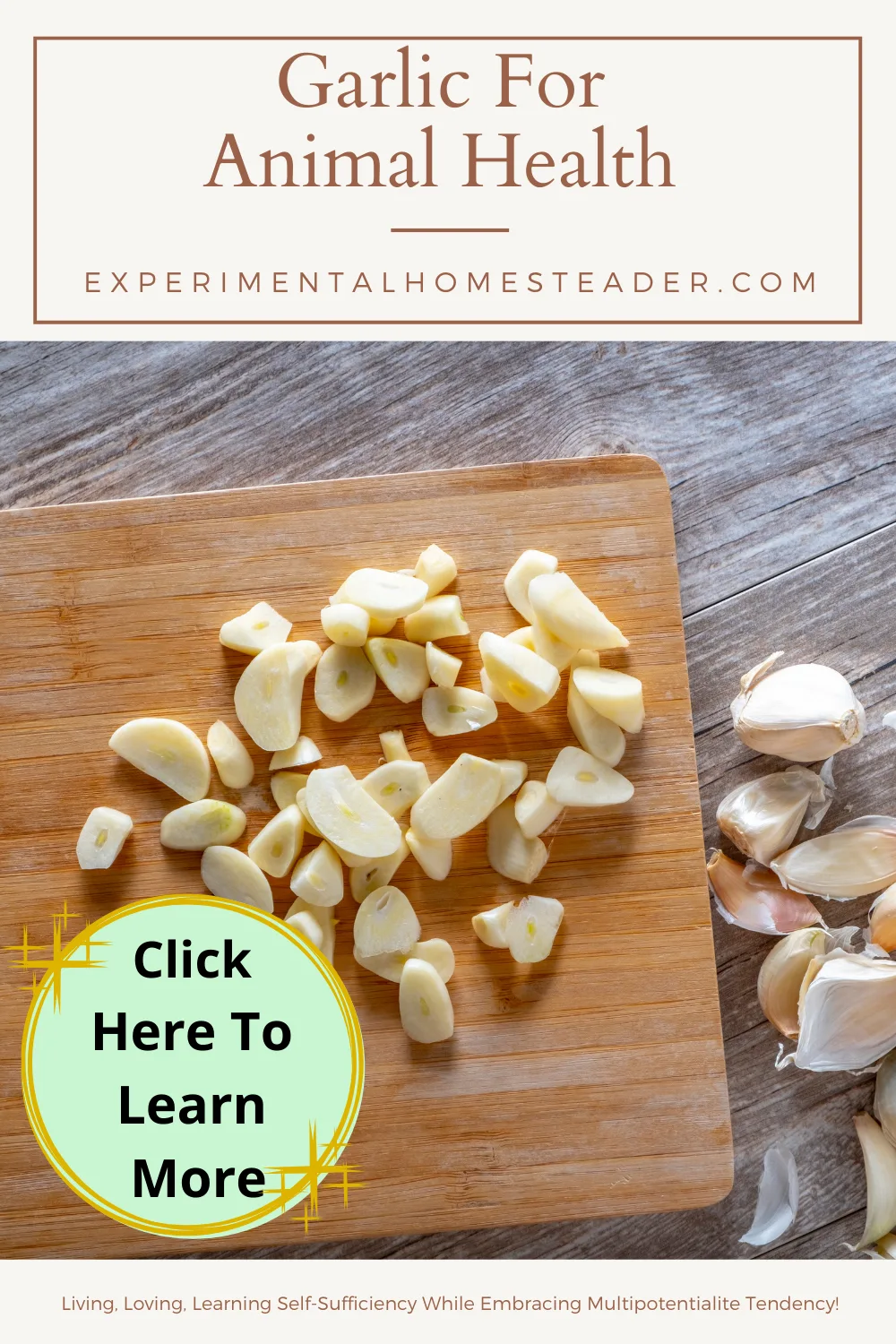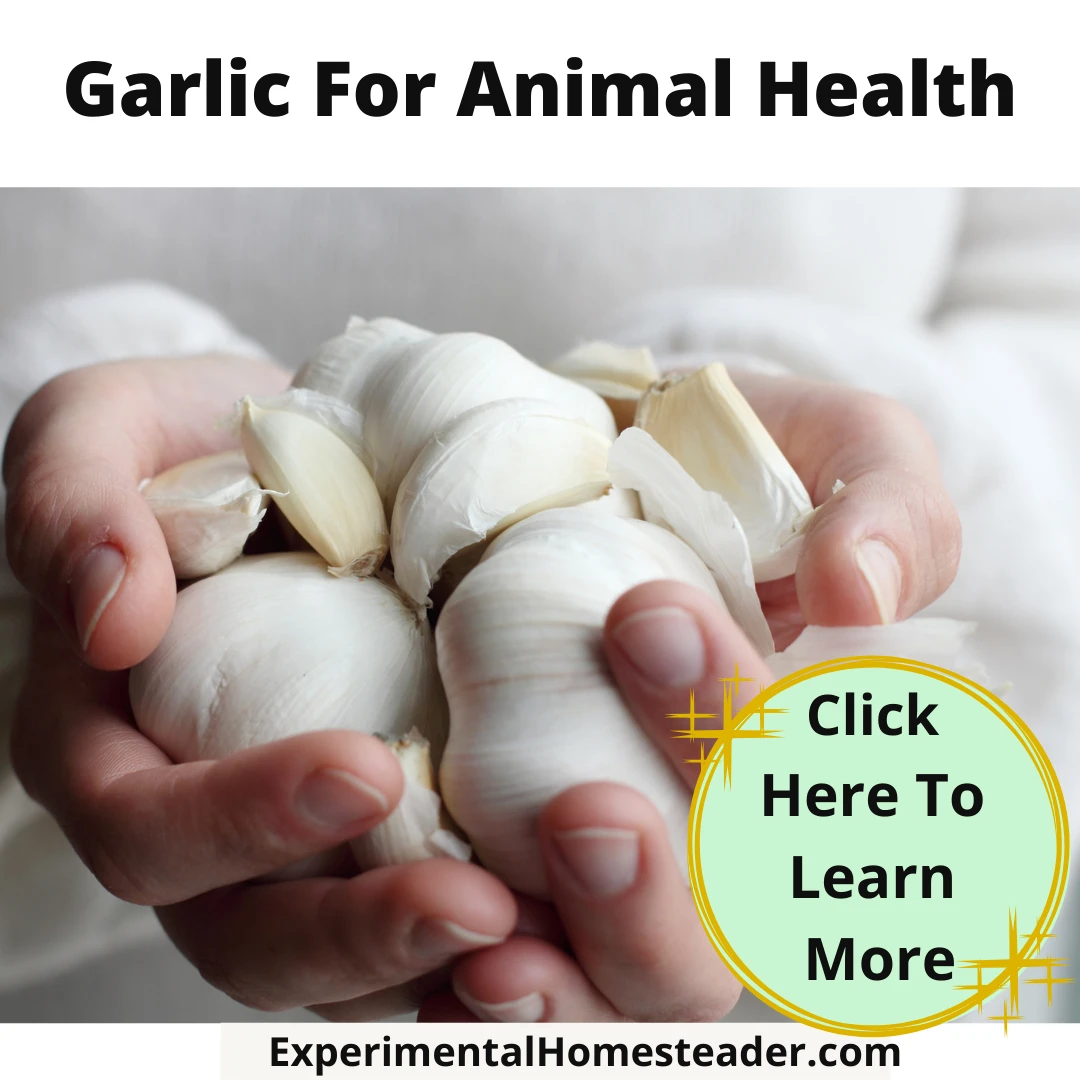Garlic contains the chemical thiosulphate, but not in the quantities that onions do, which is why there is such a debate about the safety of giving garlic cloves to animals.
Garlic is reputed to get rid of fleas, parasites, improve the skin coat and improve an animal’s general health. In fact, many dog feeds contain garlic. Just read the label.

Problems come about when pet owners go overboard or feed garlic to an animal that is allergic to it. Yes, animals have allergies just like humans do. As the levels of thiosulphate build up in an animal’s blood stream, damage can occur. The results could be mild anemia to major bursting of the blood cells which would lead to the death of your pet.
A garlic clove now and then given to a dog, goat, chicken, sheep or horse is usually ok, but before doing so, talk to your vet. Consider the size of the clove and the weight of your animal. If the animal spits the clove out and does not want to eat it, do not force it on them.

I have always offered crushed garlic to my poultry, garlic cloves to my goats and dogs. They seem to enjoy it, but I do offer it as more of a treat then as part of their regular diet. I usually offer a tiny amount in the beginning to make sure they are willing to eat it and do not have an allergic reaction to it. I also notice them eating the tops of garlic that is growing in the garden when they get out of their fenced in areas.
I use garlic in combination with diatomaceous earth (DE), kelp, colloidal silver, herbs and essential oils because I believe both internal and external parasites and pests do become immune to the cure if you only use one product all the time. I do have regular vet checkups on my animals and I do use conventional medicine if I have to but my experience has been once I was able to move away from conventional medicine - which was a slow process - I have not had to go back. The garlic works great in combination with the other alternative practices that I choose to use.




